Love your Disease
| October 28, 2013In 1491 if you were to stand on a beach watching a loved one sail away out onto the ocean you might notice some changes in your physiology as the boat disappeared over the horizon. Your heart rate might increase, your palms might sweat, you might notice some contracting muscles in your body. Our internal conversations (self-talk) and beliefs have profound effects on our body. Our beliefs that there was an edge to the earth automatically, involuntarily affected our body at that time. Even years later with consciously changed belief patterns our unconscious response to a similar scenario might produce the same physiological pattern. As conditioned patterns may still remain.
Our bodies are like dance partners with our psyches. There is energy and movement between the two. Most people have an orientation to their disease or collection of symptoms as an intrusion in their life. “How dare our body do this to us! ” Our conscious and unconscious self talk is intimately linked to our experience of generating a healing process. Healing is related to our well-being, our interpretation or internal evaluation of our circumstances. For many, health is limited to the absence of the symptoms. Healing is usually associated with a learning process on some level – “What is the blessing in disguise here?”
In the disease model something is wrong with our body and we must fix it – we usually negatively assess the symptoms as bad, awful, wrong and most certainly a problem. We may not realize these interpretations are not the truth about the symptoms. They are our evaluations that either open possibilities for healing or close them. Might these symptoms be signals for change?
Our body is wise. Acceptance and openness to learning the wisdom that our body is speaking is a judgment we have the choice to make. What is the opportunity for us when we endeavor to eliminate symptoms? Is it learning about our physical machinery (body) and what makes it work efficiently or do we need to learn more mental and emotional resources to live more peacefully within ourselves? Our thoughts and feelings and the presuppositions (underlying assumptions) that give root to what we think and feel can assist us in the healing process. Our thoughts and feelings can also block us and keep us in constant complaint mode, adding suffering to our pain. Loving our disease or symptoms is not an open embrace asking for more of it. Loving our disease is an assessment we create that accesses our resources.
Healing can be without suffering. It can be with dignity. Loving our disease can open new possibilities for healing.
